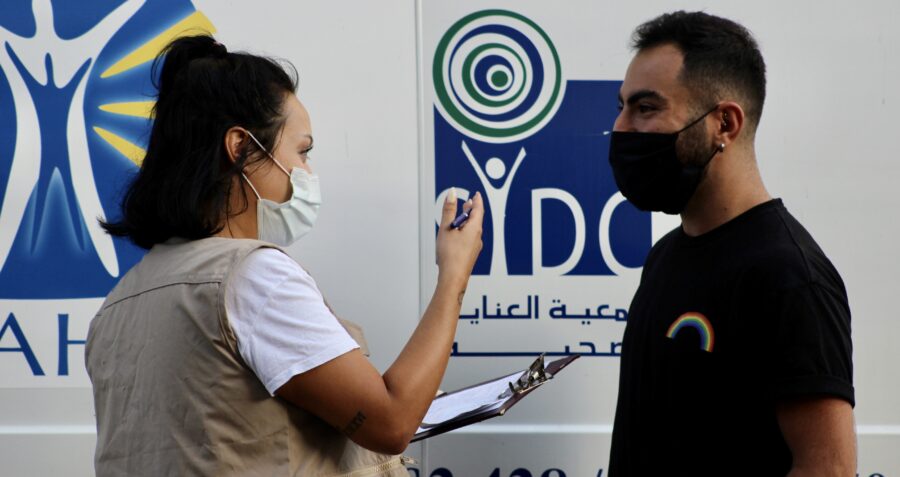Nadoum – integrated SRHR and mental health services

Key information
- Organisation: Society for Inclusion and Development in Communities and Care for All (SIDC)
- Country: Lebanon
- Region: Middle East and North Africa (MENA)
- Stage of innovation: 5. Market ready
- Start date: 2020
- End date: 2021
- Type of innovation: Service innovation: new or improved service
- Budget: 27,540 USD
- Funder: Global Fund (Fund received by SSRs providing MHPSS to key populations within the grant)
Summary of intervention
Recent political events in Lebanon and devaluation of the Lebanese Lira have affected almost 80% of the population, launching many into poverty. This has led to escalating mental health issues, a situation that has been further impacted by the COVID-19 pandemic.
SIDC has been delivering mental health support for people on opioid substitution treatment at the ESCALE Centre since 2010. In 2019, in response to increased demand for mental health services, SIDC extended its services. The mental health team now comprises 3 psychiatrists, 15 psychologists, more than 4 counsellors, and other professionals providing psychosocial support. A Mental Health helpline and Tele-Mental Health Services (TMHS) are operational, and comprehensive and evidence-based ‘Guidelines for Tele-Mental Health Services’ have been developed for all professionals delivering TMHS to SIDC’s beneficiaries. The Guidelines are based, not only on evidence, but on SIDC’s extensive field experience.
Individuals can access comprehensive psychosocial and psychiatric services (individual, family and community interventions). In addition, the mental health department provided food baskets and vouchers for patients to support them during the economic crisis, as well as referrals to associations that provide free psychiatric medications.
Mental health support has now been integrated into sexual and reproductive health and rights services (SRHR) under the Approaches in Complex and Challenging Environments for Sustainable SRHR (ACCESS) programme.
The high number of people accessing the service and the number of referrals from other health care professions reflect promising results.
learnings
Integrating mental health services within SRHR has proved effective in delivering a comprehensive package of services in one place. Clients are already in the health unit, enabling health care providers to directly refer them from one service to another one. This is an individual-centred approach where the clients’ needs are considered on multiple levels (social, physical and mental health). They have one health record, which different care providers can access; they can share information with each other and learn more about the diverse needs of the individual, enabling holistic case management. Referrals outside the unit can also be made. The main barrier is the lack of resources to sustain the services in the long term.
Next Steps
The next steps are to advocate to sustain service provision, scale up the referral system and train service providers in this holistic approach . Whilst delivering services, the project is identifying gaps in interventions and these findings will feed into programming and advocacy for policy change.
Sustainability
To sustain these services, further funding is needed and the centres need to be formally recognised as specialised community centers for vulnerable groups.

